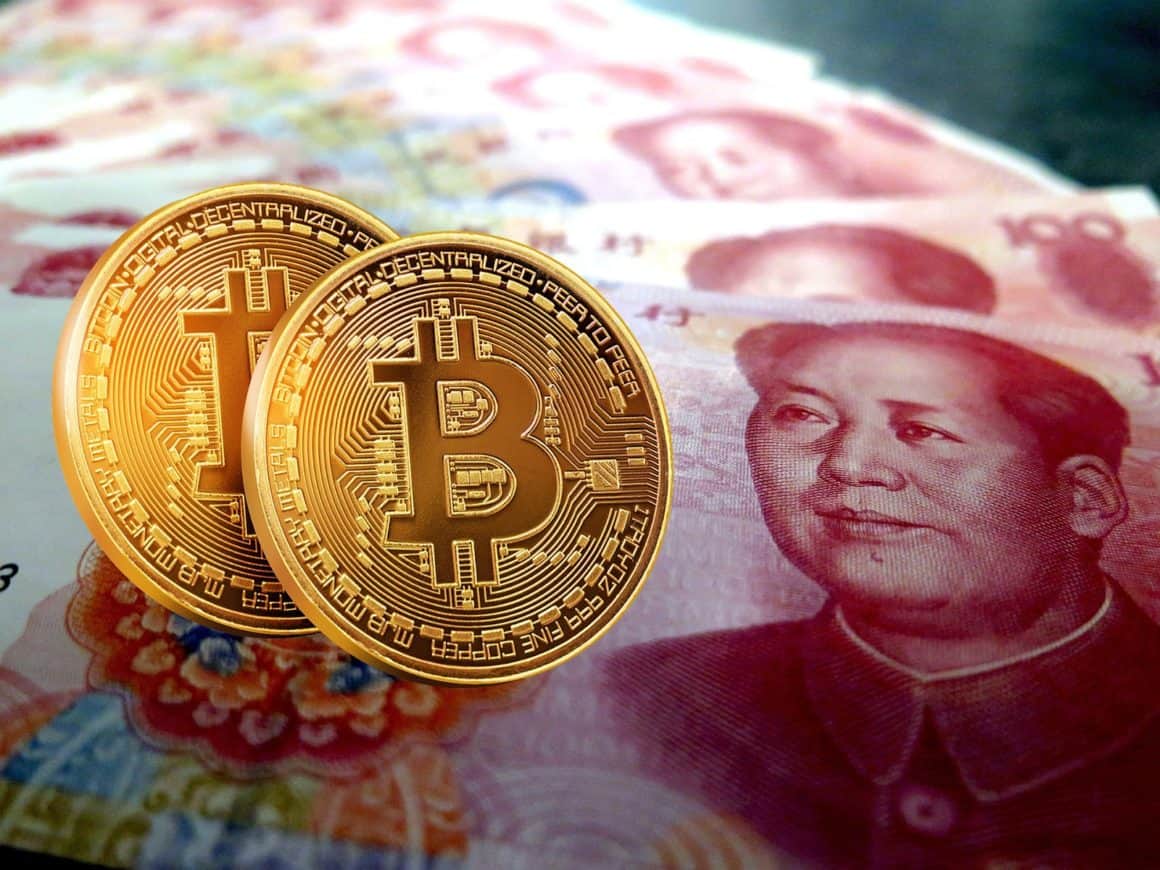In this issue
- How investors like Guggenheim Partners are pushing bitcoin prices into stratosphere
- Is Facebook’s Libra — now called Diem — about to launch?
- Visa partners with BlockFi to offer first-ever bitcoin rewards credit card
- Bank of International Settlements eyes stablecoins
- In China: 14 PlusToken ringleaders sent to prison for US$225 million scam
- Funding spotlight: blockchain real estate management in the Philippines
From the Editor’s Desk
Dear Reader,
What is a stablecoin?
Well, I would say it is slightly a misnomer. Consider 2020 as the ultimate metaphor that answers the rhetorical question: what is stable these days anyways? But I digress. To answer technically, a stablecoin is a cryptocurrency that is tied to a “stable” asset (for example, the U.S. dollar) or in other cases, a basket of currencies (similar to a currency index that aggregates a number of currencies, and the average becomes the “value”).
We have certainly seen the rise of stablecoins this year. USD Coin (more commonly referred to by its acronym USDC) has been growing like gangbusters. At the beginning of this year, the total market capitalization of USDC was US$262 million. Today, its market cap sits at US$2.9 billion. Triple-digit growth.
You can imagine why. As a way to capture cryptocurrency gains during periods of massive volatility in the cryptocurrency markets, stablecoins are often seen as a safe haven. And now the Bank of International Settlements — which essentially serves as the bank for central banks — is now weighing in on the significance of stablecoins for the international monetary system. One thing that it is very thoughtful about is the contrast it sees between existing stablecoins and global stablecoins like the proposed Libra coin that potentially could see the light of day in Q1 2021.
Interestingly, the Libra Association that Facebook put together announced today it has renamed itself “Diem,” the latin word for “day.” There is marketing eloquence there no doubt for the future Diem coin. The sun has set for the ill-fated Libra proposal that saw intense backlash from global regulators. So, Libra has morphed into Diem, a dollar-pegged stablecoin; and now its dawn nears.
Carpe diem. Let’s see if people will do just that and seize the day.
Until the next time,
Angie Lau
Founder and Editor-in-Chief
1. Guggenheim Partners fueling bitcoin’s new heights

By the numbers: Guggenheim Partners — over 5,000% increase in Google search volume.
Bitcoin has broken its all-time record high by reaching US$19,800, according to CoinGecko. Bitcoin’s record-breaking prices followed the news of a recent SEC filing, where Guggenheim Partners, a global investment and financial advisory firm, disclosed that it is looking to invest up to 10% of its US$5 billion Macro Opportunities Fund to Grayscale Bitcoin Trust (GBTC).
- American economist Nouriel Roubini (@Nouriel): “Bitcoin has no role in institutional or retail investors portfolios. It is not a currency: not an unit of account, not a scalable means of payment & is a highly volatile store of value. It is heavily manipulated: look at the investigation of Bitfinex by US law enforcement.”
- Just last month, Grayscale Investments announced that GBTC now holds more than 500,000 bitcoin, which is worth over US$9.5 billion as of press time. Bitcoin is currently trading at US$19,078.
- Meanwhile, Ethereum has finally launched its much-anticipated upgrade, as the Ethereum 2.0 Beacon Chain went live on December 1. While ethereum prices reached a high of US$632.77 since the upgrade, it subsequently dropped to US$571.56. The cryptocurrency with the world’s second highest market cap is now trading at US$589.33 at the time of publication, according to CoinGecko.
Forkast.Insights | What does it mean?
Bitcoin is becoming an institutional-grade asset, and Guggenheim Partners is making a US$500 million bet on this. Institutional investors are building an appetite for exposure to this commodity, but aren’t exactly interested in opening an account on Binance or another exchange to build a portfolio. That’s too high risk (exchanges are notorious for being hacked), and would push the question of custody onto Guggenheim. Instead, it’s doing so through a regulated fund, which, for its fees, handles all the intricacies of cryptocurrency ownership.
The only problem with Guggenheim’s play is that it’s expensive. The Grayscale Trust trades at a huge premium, sometimes up to 100% and even more. But investors seem not to mind, as they see the custody services Grayscale provides as incredibly valuable. Institutional investors are also less concerned with the day-to-day price of the asset and more so with its ability to hedge against the direction current monetary policy is going. After all, the price of bitcoin has skyrocketed from a low of around US$4,000 in March to cresting the all-time high of just over $20,000 this week. If Grayscale is able to scale up their operations thanks to the size of Guggenheim’s investment, this premium will likely come down, opening the doors to smaller institutional investors to pursue the same path.
2. Is the cryptocurrency formerly known as Libra about to launch?

By the numbers: Libra — 1,050% increase in Google search volume.
The Financial Times cited three anonymous sources to report that Facebook-backed Libra is now gearing up for a January launch as a single-coin cryptocurrency backed by the USD.
- The report suggests that Facebook will be scaling back from its earlier ambitions even more. Last year, Facebook unveiled plans for Libra to be a standalone private cryptocurrency. After a barrage of government objections, Libra changed its plans earlier this year to being a basket of stablecoins pegged to different fiat currencies.
- PayPal, one of the first members of the Libra Association — the independent group formed by Facebook to manage the new digital currency — was also the first member to quit the initiative in October last year. Since then, PayPal has embraced bitcoin.
- Starting today, the Libra Association will now call itself “Diem.” The association’s new name comes on the heels of the rebranding of Facebook’s digital wallet, from Calibra to Novi, earlier this year. Libra’s name will also change to Diem.
Forkast.Insights | What does it mean?
Silicon Valley’s tech giants are known to “move fast and break things.” Think, as far back as the turn of the century, what peer-to-peer file sharing pioneer Napster did for our perceptions of the value of an individual song and copyright law. Or what Uber did for the idea of urban transportation.
But this ethos has hit a brick wall when it comes to transforming what we think about money. As powerful as the Recording Industry Association of America is, or taxi unions and city governments, bankers and financial regulators are a bit more muscled when it comes to getting their way. In trying to transform currency, Facebook hit a brick wall. Governments rarely act in unison, but it’s been remarkable how they have universally blocked Libra. It’s almost as if they all saw a supranational currency issued by a corporation as a threat to their monetary sovereignty — a threat to the financial status quo. Facebook’s two billion users would make it the world’s largest country with a currency that could disrupt the pecking order of global currencies and, if popular, would provide a competitor and thus devalue them.
The Libra — now renamed Diem — that Facebook is able to launch looks nothing like the ambitious currency that it proposed with its first iteration. It’s a simple money transmitter that looks more like a stablecoin than the “currency without borders” that Facebook originally intended. But it seems to be the only realistic way that the newly rebranded Diem can come into existence. For governments, currency is often part of what defines sovereignty. They aren’t going to cede that to a company in Menlo Park, California.
3. Visa and BlockFi to offer bitcoin rewards credit card

By the numbers: BlockFi — over 5,000% increase in Google search volume.
Multinational financial services firm Visa Inc. and cryptocurrency services provider BlockFi have partnered to launch the world’s first-ever Bitcoin Rewards Credit Card, which will reward users’ purchases with bitcoin rather than traditional rewards such as airline miles or cash rebates. Visa follows PayPal’s footsteps as a former Libra Association member to withdraw from the project and then later launch its own cryptocurrency-related services.
- The credit card comes with a US$200 annual fee and cardholders will receive 1.5% of their purchases back in bitcoin.
- The credit card will be issued by Evolve Bank & Trust, and is scheduled to be made available for U.S. users by early 2021.
Forkast.Insights | What does it mean?
As bitcoin and other cryptocurrencies become more mainstream, naturally credit card issuers are going to want to find a way to integrate it into their ecosystems. From a regulatory point of view, having a credit card that’s denominated in bitcoin or another cryptocurrency would be challenging. But there’s not really any barriers to offering it as a reward. The issuer would need to just purchase a set amount of bitcoin and disperse it according to their rewards scheme.
But is this a good deal for consumers? Not really. As a cashback scheme, 1.5% is a pretty paltry offering. Some of the leading cashback credit cards offer up to 6% when used at certain retailers. You’d be better off getting one of these cards and then just buying cryptocurrency with your cashback rewards.
4. Bank of International Settlements considers stablecoins

By the numbers: Bank of International Settlements — over 5,000% increase in Google search volume.
In a new report from the Bank of International Settlements (BIS) titled, “Stablecoins: risks, potential and regulation,” BIS acknowledged the opportunity presented by stablecoins such as “embedded supervision.” However, the global financial institution owned by 63 central banks proposes that other initiatives, such as central bank digital currencies (CBDCs), would be a more efficient alternative.
- The BIS categorizes stablecoins into existing stablecoins and global stablecoins. Existing stablecoins “serve as a means of settlement for automated financial products” through smart contracts. Meanwhile, global stablecoins such as Facebook’s proposed Libra, now renamed Diem, would present new possibilities for online transactions.
- “Looking forward, in such cases, one possible option from a regulatory standpoint is to embed supervisory requirements into stablecoin systems themselves, allowing for ‘embedded supervision.’ Yet it is an open question whether [CBDCs] and other initiatives could in fact provide more effective solutions to fulfil the functions that stablecoins are meant to address,” BIS reported.
Forkast.Insights | What does it mean?
The Bank of International Settlements has a mandate to promote financial stability by pushing for global financial policy to be predictable and financial tools to be transparent and subject to oversight. Stablecoins’ growth has been one of the defining stories of 2020, but the use case has been primarily localized to the crypto community. There’s not yet mainstream usage for stablecoins in remittances, but it may happen in the future.
For the BIS the concern would be a possible wipeout of a new financial product because of underregulation. Regulation can be added in the aftermath of a wipeout, but the BIS would prefer to see something built with regulation in mind first — CBDCs. But CBDCs are going to take a monumental re-ordering of the money supply. After all they are digital money, a newly issued form of currency, versus stablecoins as digitized money, a fairly well-understood concept.
Even though CBDCs would be a more efficient vehicle for remittances, and which ticks off the box for embedded supervision, stablecoins are already on the market while CBDCs are something on the horizon. It would be easier to produce a stablecoin that meets the requirement for “embedded supervision” — the higher level of regulatory requirements — instead of waiting for the day CBDCs arrive.
5. In China: 14 sentenced to prison over US$225 million PlusToken scam

Chinese authorities seized over 300,000 bitcoin and 9 million ether from PlusToken, the biggest crypto scam in China, according to an official announcement. PlusToken operated as a Ponzi scheme platform that offered investment returns depending on the number of new members that users recruited.
- On October 26, the Jiangsu Yancheng Intermediate People’s Court dismissed an appeal and upheld the original judgment in the PlusToken scam case. Fourteen PlusToken ringleaders have been sentenced to 2 to 11 years in imprison.
- According to the verdict, PlusToken has defrauded over 1.5 million people since 2018 out of eight kinds of cryptocurrencies, including 314,211 BTC, 117,450 BCH and 9,174,201 ether. The total losses were valued by the court at 1.48 billion RMB, or US$225 million. The ruling decreed that all the seized cryptocurrencies would be surrendered to Chinese authorities, but it didn’t explain what the government would do with the large amount of digital assets.
Forkast.Insights | What does it mean?
China’s strict cryptocurrency ban and tightening controls over its crypto industry is to prevent retail investors from getting wiped out in a repeat of the 2017-2018 ICO bubble bursting. Although China’s crypto industry has tried to present itself as having matured since those days, and Beijing has responded by loosening some parts of its ban, episodes like PlusToken, in the eyes of regulators, reinforce why strict regulations and such a ban must exist in the first place.
PlusToken promised investors high-yield savings accounts with interest rates between 9-15%. In a market hungry for yield, this was an ultra-attractive offer. But, unfortunately for those who bought into the token, on the other end there wasn’t anything that could generate the capital required to pay out the promised returns. The only thing that actually produced enough capital to pay out early rounds of investors were other investors down the road, buying in. A classic Ponzi scheme that appealed to unsophisticated investors.
Because of stunts like PlusToken’s, China’s crypto industry will continue to be under intense scrutiny. Not all DeFi protocols are Ponzi schemes, but it’s fast-paced, make-or-break nature might look like that to some (as well as the protocols that sometimes vanish into thin air). In the post-PlusToken era, China’s crypto industry should expect an even stricter regulatory regime in the country.
6. Funding spotlight: fintech in Philippines
Aqwire — Series A, Philippines, US$2.1 million
Filipino startup Aqwire, a blockchain real-estate startup focusing upon smart-contract property management tools, announced a US$2.1 million funding round last week. Singapore’s Spiral Ventures was the lead investor for the round. The company’s site claims to “empower your business to collect and manage payments anywhere in the world” with a focus on the Philippines’s real estate market. An explanatory video for the payment process says that the company is powered by some of the biggest banks in the world and have been dealing with real estate payments since 2015. Aqwire founder Ray Refundo also founded Qwikwire, a fintech integration system for cross-border transactions with SAP, Xero and QuickBooks support.
Forkast.Insights | What does it mean?
In terms of international payment integration, existing international transfer options (including TransferWise or PayPal) present a compelling opportunity for companies seeking to expand abroad. Startup payment platforms, however, face a steep challenge to compete — leading many, including Aqwire, to partition off their section of the market. A report by Boston Consulting Group in October emphasized that startups in the international payment industry “will need to work harder [as the] payments space is becoming more crowded” with the pandemic forcing “established institutions [to continue] to innovate.”




